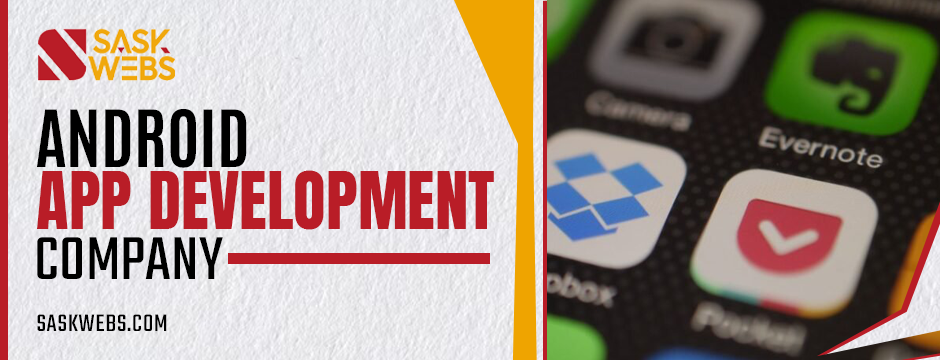
The process of developing an app is more complicated than it first appears, and there are many considerations to make while deciding which language to utilize. In total, hybrid applications leverage web-based technologies like HTML5, CSS3, and JavaScript, whereas native apps, written in programming languages, operate on particular platforms (iOS and Android).
The top five languages utilized to create Android apps by Android App Development Company are briefly summarized here:
Java
Android Studio, Google’s official IDE (Integrated Development Environment) for Android app development, supports Java, the programming language used to create Android apps. Java is a strong, flexible language that lets programmers create reliable, fast applications.
Key Features of Java Features:
- Architectural Simplicity
- Gathered and Analyzed in Multiple Threads
- Elevated Efficiency
Kotlin
Since its creation in 2011, Kotlin has been a relatively new language. Android apps may be created with Kotlin, a statically typed programming language that runs on the Java Virtual Machine (JVM). Additionally, Kotlin is completely compatible with Java, so converting your current Java code to Kotlin will be simple.
Key Features of Kotlin Features:
- Astute castings
- Superior delegation
- Zero-risk
- Astute castings
C++
A popular language for creating high-performance applications is C++. Cross-platform applications and games that work on Android and other operating systems (OS) like Windows, iOS, and others may be created with C++. Furthermore, C++ has many characteristics that make it a good choice for creating Android apps.
Essential Elements of C++ Abstract Data Types:
- Device Self-sufficient or Transportable
- programming language at a medium level
- A programming language with structure Memory management
Python
High-level interpreted Python is a widely used language that is very readable and simple to use. Python is a great option for creating app prototypes rapidly. Python may also be used for scripting, which can help you automate tedious chores throughout the app development process. Hire Python Mobile App Developers if you wish to employ the Python language extensively in Android App Development Company.
Principal Attributes of the Object-oriented Python Language:
- Advanced interpreted language
- Compatibility between platforms
- Typing dynamically
- Effective memory control
HTML
The common markup language used to create online pages and web applications is HTML. Android apps may be made with HTML and a variety of frameworks, including PhoneGap, Cordova, etc. Furthermore, HTML is really simple to understand and utilize, allowing you to begin developing Android apps right away.
Important HTML Features: Lightweight:
- Easily Combine with Other Languages
- Compliant with Every Browser
- Easy to Modify
To receive the best advice on selecting the programming language for your Android application, engage Mobile App Developers in India. Numerous programming languages are ideal for Android App Development Company, but the usage of the same varies depending on the project’s needs.
Top Android Mobile App Development Techniques

These are a few best practices to follow while developing an Android mobile app. They will assist you in avoiding typical errors and lessen the difficulty of the process.
1. Carry out in-depth investigation
Undertaking comprehensive research is the first stage in creating a mobile application. It will assist you in determining who your target market is and what you require. You may create a mobile application that satisfies their needs and expectations. Finding out whether there is a market for your suggested app will also be made easier by conducting market research. Asking people directly about their wants, what they want from your app, etc. is a great method to gather market research.
If at all feasible, consider making mockups of your suggested app and showing them to users to get their input on what features should be added or removed and how helpful the app would be for them. Acquiring knowledge about comparable applications that are currently on the Google Play Store or Apple App Store is another crucial aspect of market research.
2. Create a strategic plan
Upon completion of your market study, you should create a strategy plan. A solid plan can assist you in determining what makes your app unique from others that are comparable to it as well as what features should be added and removed. It will also assist you in ascertaining whether your target audience believes that sort of software is necessary. For instance, there’s no use in creating a new app if users are currently using ones that are identical in terms of services or goods. On the other hand, it would make sense to create an app that delivers something fresh and practical if users aren’t utilizing any of them already.
3. Select the Method of Development
Making a strategic strategy and identifying your target market are the first steps in the process of choosing a development approach. Native app development and cross-platform app development are the two primary approaches for creating mobile apps. Because it enables them to create an app with all of its essential features on a single platform, native app development is preferred by most businesses. Additionally, it facilitates their ability to update their apps as needed. On the other hand, cross-platform app development entails creating an app for several platforms at once. If you want people to be able to access your services from several devices without having to download separate versions of your mobile app for each device, this might be useful. Hire the best Android App Development Company for the best results.
4. Select Appropriate Technologies
It’s time to choose which technologies to utilize when you’ve settled on your development methodology. Selecting which technology to use for your app starts with determining if you want it to be exclusive to iOS or Android. This will let you decide if cross-platform or native technology should be used in its development. There are two major ways to construct an app for both platforms: either utilize native APIs or an open-source technology like HTML5, which can operate effectively on all systems.
Lastly, keep in mind that creating a top-notch mobile application involves a great deal of effort and commitment on your part. If you’ve decided to design an application for a certain platform, such as iOS or Android, be sure you are fully aware of its capabilities before beginning work on the program.






